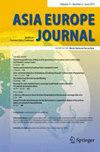In the twenty-first century, changing global power equations are impacting the dynamics of foreign and security policy choices of small states, as they seek to develop alliances and partnerships to offset their geopolitical and geo-economic vulnerabilities. In this context, Armenia’s security orientation is largely seen as consistently intertwined with Russia even after independence. Armenia has also attempted to develop a “normative alliance” with the European Union, relying mostly on its special relations with France. In recent years, various factors including domestic politics, deficit of security, and Russian dominance have led to a gradual re-orientation in the Armenian alliance trajectory towards more multilateral partnerships indicating a tendency towards “hedging” alliances. Conceptualizing from a theoretical foundation relating to small-state alliance options, this paper presents a case for Armenia-India strategic partnerships, given the historical and cultural ties between the two nations and the rapid growth of India as an emergent giant in the multipolar world. In this context of strategic analysis, the Georgia-Armenia-Iran corridor has a potential of vital geo-economic and geopolitical axis for India as well as for Russia, the EU, and China. The position of Armenia with its “both… and” integration approach, approximation with the EU, and strategic partnership with Russia has proved to be insufficient in security issues; however, the friendly disposition of a rising power, such as India, leaves Armenia with the capacity to diversify its security as a local civilizational and geo-economic connector.


